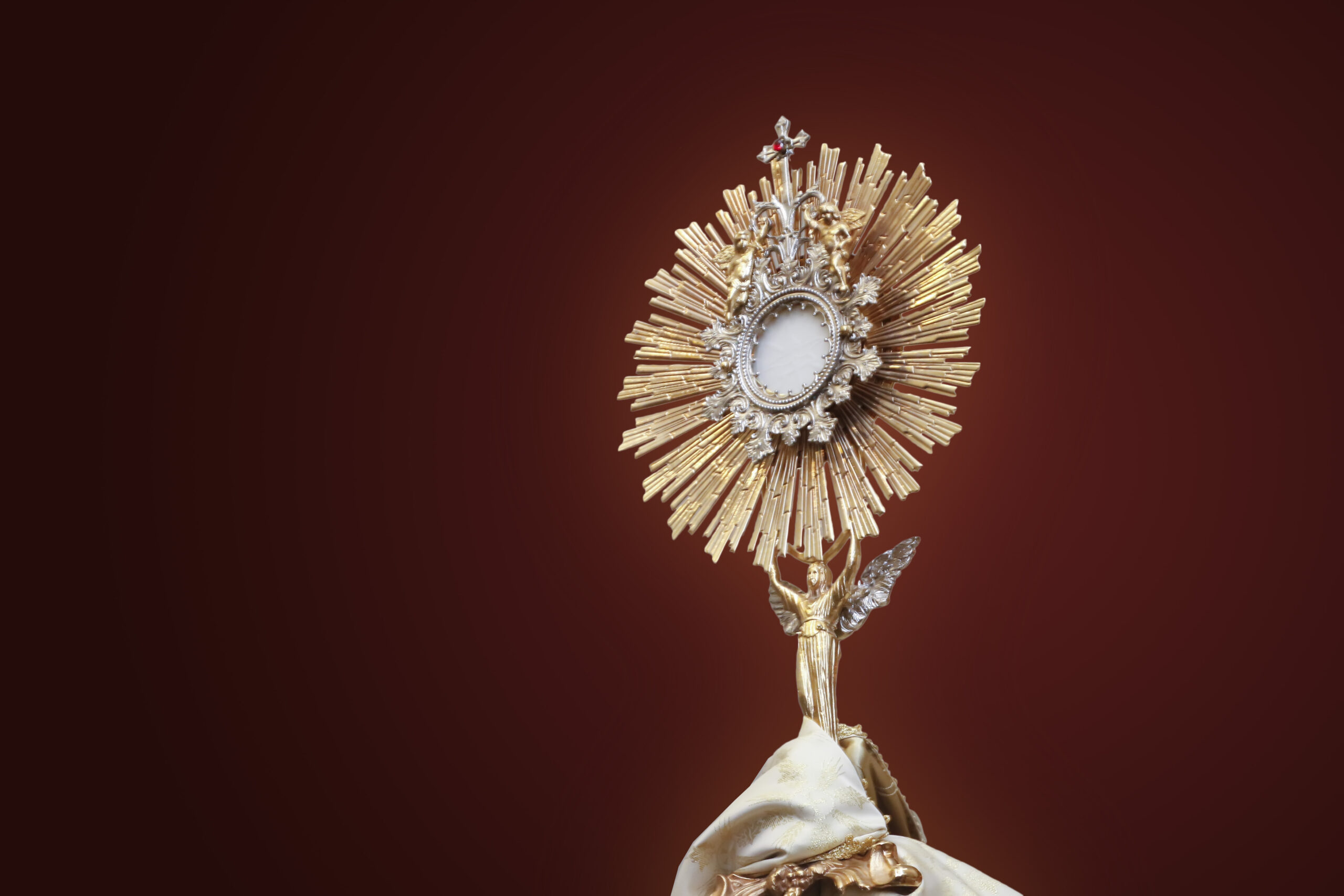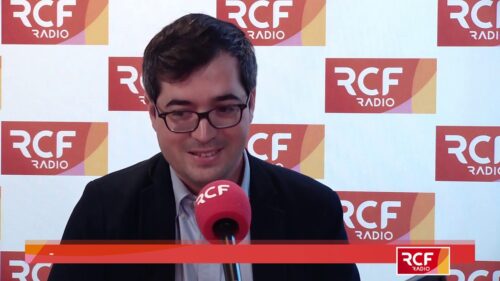Thousands of Catholics participated earlier this month in the National Eucharistic Congress, a five-day event in Indianapolis that concluded July 21. Parishes and other Catholic institutions around the country sponsored adult education programs to promote this final stage of a three-year eucharistic revival launched by the U.S. bishops.
The revival itself has been subject to what I see as fair criticism, yet LGBTQ Catholics who remain in the church because of their devotion to the sacrament offer a witness to the longing of the faithful to be present with Jesus.
A major focus of the revival is on the Real Presence and on eucharistic adoration in particular. Photos of monstrances abound. Unfortunately, this overemphasis on the presence of the Lord in the eucharistic elements overshadows the fact that the Eucharist is primarily an event, an action.
The Eucharist is better thought of as a verb than as a noun. To be fair, the revival campaign has included other aspects of the Eucharist, but adoration seems to have predominated.
The Eucharist is better thought of as a verb than as a noun.
Speakers at the Congress were generally those who favored a pre-Vatican II theology instead of the Liturgy Constitution’s affirmation of multiple aspects of Christ’s true presence in the eucharistic celebration: the proclamation of the Word, the minister, the assembly and the consecrated body and blood of the Lord.
It seems to me that the millions of dollars spent on the revival—and especially on the Congress—would have been far better spent on programs improving liturgical preaching, music and formation in general.
In 2021, the U.S. Conference of Catholic Bishops issued the pastoral letter, “The Mystery of the Eucharist in the Life of the Church.” This document was inspired by two factors. The first was a concern to urge Catholics to return to Mass in person as the Covid pandemic waned.
The second was a 2019 poll that found only one-third of U.S. Catholics knew the church’s teaching on transubstantiation, the Real Presence of Christ in the consecrated eucharistic elements. (One caution: The survey results show a much higher correlation between frequent Mass attendance and belief in the true presence.)
Much of the buzz around the bishops’ document concerned rumors that some bishops might use it to recommend witholding holy Communion from politicians supporting abortion access or same-sex marriage. In fact, the final version of the document only reiterated canon law’s restriction on denying communion to those who publicly persist in manifest grave sin (Canon 915).
Christ is the true source of our life, and we experience him in our celebration of the Eucharist so that we might become his embodied presence in a world which so desperately needs it.
Individual bishops are at liberty to apply that canon as they wish, as Archbishop Salvatore J. Cordileone of San Francisco did with regard to then Speaker of the House Nancy Pelosi in 2022. The document did not really break any new ground. The bishops were apparently satisfied that the sharply critical analysis of Monsignor Kevin W. Irwin, a theologian and professor at the Catholic University of America, could have been written before Vatican II.
As a matter of fact, the bishops’ document does spend a good deal of space on eucharistic adoration and one’s worthiness to receive holy Communion.
Why should this interest Outreach readers? It seems to me that many LGBTQ Catholics find in the Eucharist one of their main reasons to remain in a church that rejects or marginalizes them in many ways. To be sure, there are many other aspects of Catholicism to which LGBTQ faithful are attracted: devotion to Mary and to the saints, their own family heritage, their moral convictions.
I do not mean to denigrate the importance, indeed the centrality, of the celebration of the Eucharist among other Christians, like the Orthodox and many Anglicans and Lutherans. But despite the Pew survey mentioned above, Catholics find the Real Presence of Christ in the Eucharist to be a major source of consolation and conviction that the Lord chooses to be among us in a very sacramental, tangible way.
I suspect that many LGBTQ Catholics intuit the fact that Christ’s gift of himself to us in such a beautiful way is the inspiration for living a Christlike life. After all, medieval theologians recognized that the final end of the Eucharist is not the real presence, but rather union with and in the Lord. Remember that 1 St. Paul excoriates the Corinthians for having celebrations that exclude the poor (1 Cor. 11).
I firmly believe that LGBTQ Catholics hunger for communion in Christ, not just with one another, but with the whole church.
When he says that they do not recognize the body of Christ, he means the body of Christ that constitutes the church. The community is a realization of the body and blood of Christ that it shares. As St. Augustine put it so well in one of his sermons to the newly baptized: “If you, therefore, are Christ’s body and members, it is your own mystery that is placed on the Lord’s table! It is your own mystery that you are receiving!”
I firmly believe that LGBTQ Catholics hunger for communion in Christ, not just with one another, but with the whole church, a church which is meant to be the sacrament of unity for the whole world. Christ, we believe, is the true source of our life, and we experience him in our celebration of the Eucharist so that we might become his embodied presence in a world which so desperately needs it.
If the National Eucharistic Revival inspires all of us to be that and to do that, it will be a revival in fact and not in name only.




